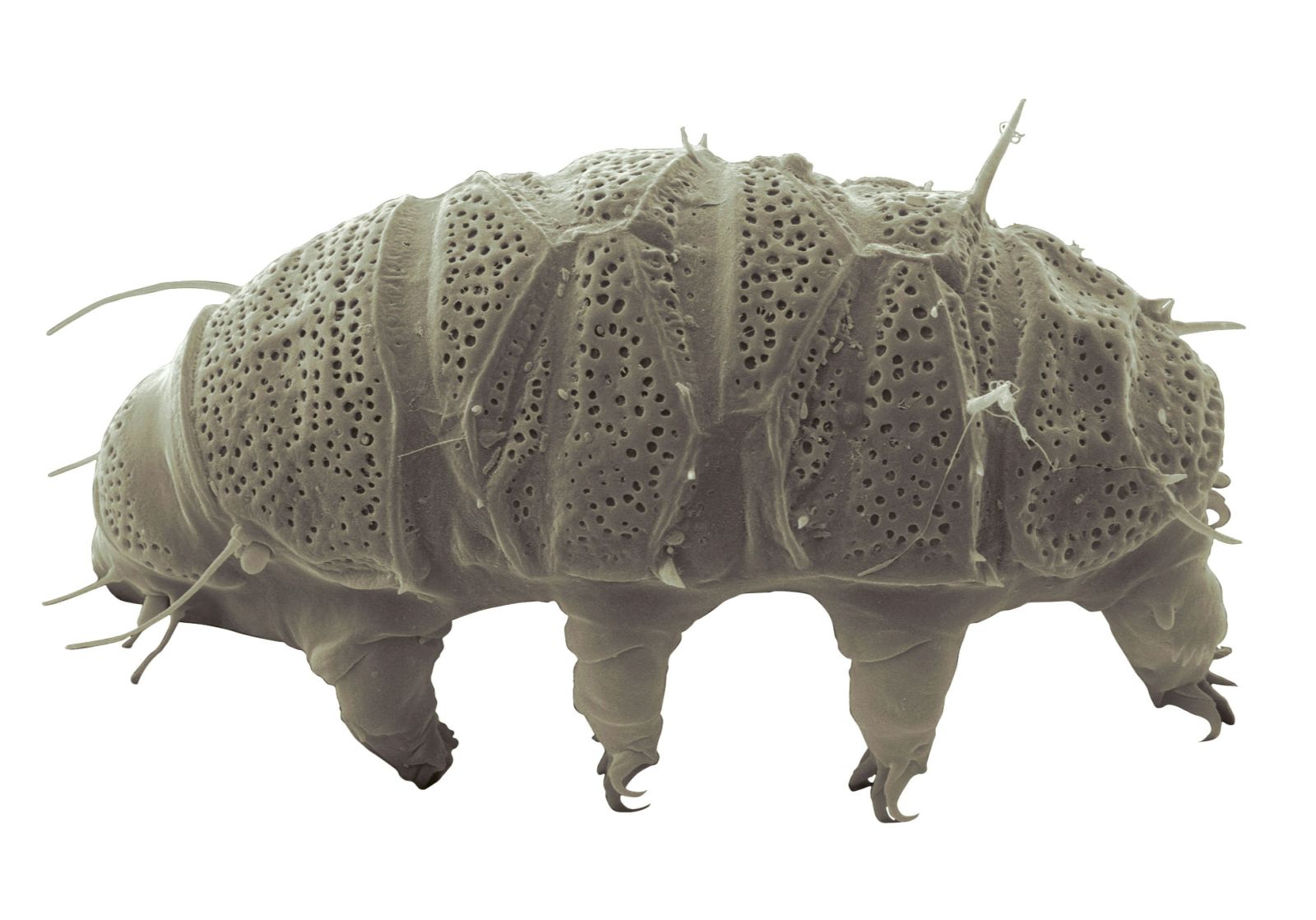This marine animal is the only one that doesn't ingest microplastics, here's why
Published by Cédric,
Article author: Cédric DEPOND
Source: PeerJ Life and Environment
Other Languages: FR, DE, ES, PT
Article author: Cédric DEPOND
Source: PeerJ Life and Environment
Other Languages: FR, DE, ES, PT
Follow us on Google News (click on ☆)
Tardigrades, those quasi-immortal animals, do not appear to ingest microplastics. Yet, nearly all marine species are affected by these particles.

Image Wikimedia
Brazilian researchers immersed over 5,600 marine organisms in a bath of microplastics. They observed that only this resilient creature escapes the ingestion of these pollutants. All others, from nematodes to polychaete worms, to crustaceans and mites, ingested microplastics. These tiny particles, detected using fluorescent pigments, unfortunately often end up in marine sediments.
Microplastics, defined as plastic fragments generally measuring less than 5 millimeters (about 0.2 inches), mainly originate from the degradation of plastic objects mass-produced by human industry. This fragmentation process occurs due to environmental factors like sunlight, wind, and marine erosion.
Once released into the oceans, these tiny particles accumulate in marine organisms, often ingested unintentionally. By lodging in the tissues of many species, microplastics gradually move up the food chain, eventually reaching larger animals and even humans.
In tardigrades, the absence of microplastic ingestion seems to be directly linked to the unique structure of their mouthparts. This structure includes a stylet, a specialized tube they use to pierce and suck fluids from their prey. Unlike other organisms that ingest prey whole, tardigrades consume only extracted liquids, which greatly reduces their risk of accidentally ingesting solid particles, such as microplastics.
Although these creatures escape ingestion, they are not entirely free from plastic. Microplastics often cling to their locomotor appendages (in other words, their legs), thus affecting their mobility.
This study opens new perspectives on the ecological impacts of microplastics. It also highlights the importance of studying the unique resilience of certain species like tardigrades in an ocean filled with plastic.